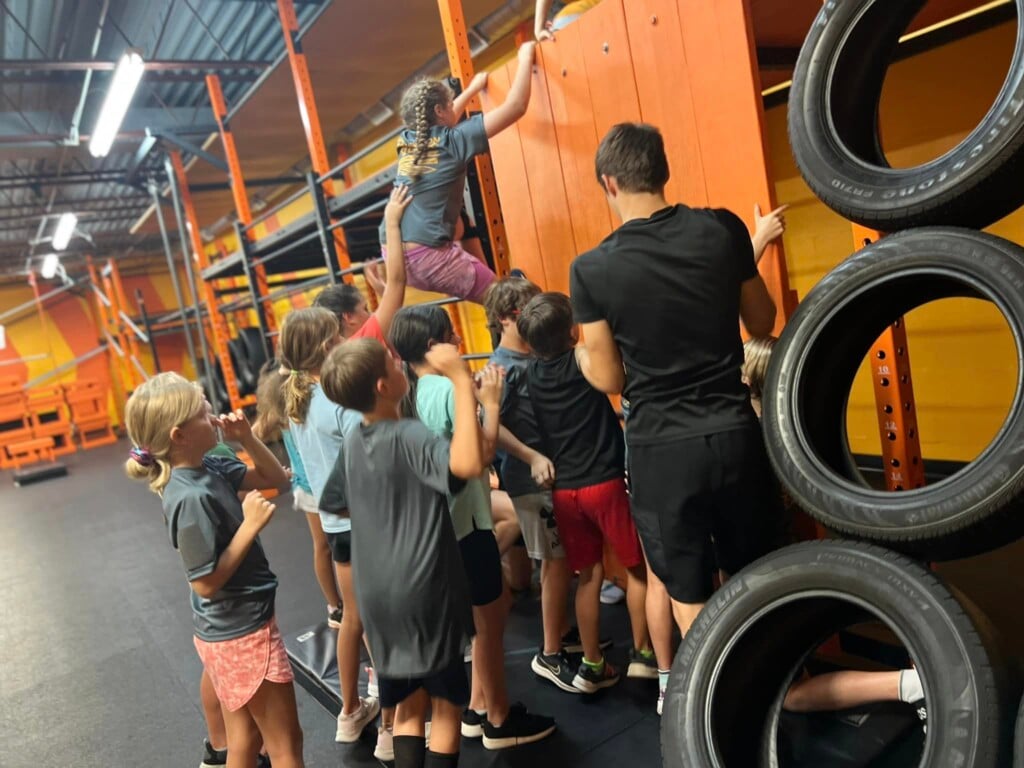ASK A MOM: Consequences, babysitters, and bedtime routines
WBTV's Molly Grantham tackles your parenting questions in this ongoing series

Q: Hi Molly! This year, I decided to stop packing my 3rd and 4th graders’ backpacks every morning before school. My husband and I agreed it was time to give them this responsibility. Problem is, they keep forgetting their lunches, so I either have to bring their lunches to them at school or pay for hot lunch. A few times, my son left his homework, and last week my daughter forgot her library books. I feel like I’m getting punished and it would be easier to just pack their backpacks for them. But my husband says they need to suffer the consequences. What’s the best way to handle this? —Erin
A: If you repeatedly take their forgotten lunches to school, drop off missing homework, and return late library books, what are they learning? It sounds like you’re giving them a daily safety net. If they forget items you said were their responsibility, are the consequences being felt?
Don’t get me wrong. It’s hard to stare at homework you know is due sitting all alone on your kitchen counter. Like most things in parenting, says Juliet Lam Kuehnle, owner of a counseling company in Charlotte and founder of the @yepigototherapy mantra on social media, it’s not easy. She says this question doesn’t have a one-size-fits-all answer.
“For the most part, I love and absolutely support kids at this age taking on this task,” she says. “They are totally capable. We can’t expect perfection of course, so look at what’s happening overall. Are they occasionally forgetting it when mornings are rushed, or is it happening consistently? Stay consistent with the expectation they take their things every single day. Try collaborating with them. Sit down and brainstorm or problem-solve with your kids to come up with ideas that help them see the task all the way through. They might think of something wildly creative. For instance, my kids picked out lunch boxes they were super excited about when we first started having them pack lunch for themselves. The routine helped create a fluidity that they were part of deciding. Either they can prepare it and put it right in the bookbag, or maybe start the routine the night before and leave the lunchbox in the fridge. Your kids can find what works for them.”
You can also put a note on their bookbag or make a “morning to-do list” until this task becomes habit. “Teaching kids independence and helping them build pride in accomplishing it is a beautiful thing,” she says. “And make sure they understand why they’re being given this independence, so they have buy-in.”
Juliet added one caveat, though: children with ADHD, anxiety, or any diagnosis that can impair executive functioning may need extra attention. If forgetting lunch, homework, or library books is part of a larger pattern, she suggests seeking support for that as well.
Q: My 13yo daughter wants to start babysitting. Besides getting CPR certified, what else should she do to be prepared and responsible? —Leah
A: The American Red Cross offers a day-long babysitting course. I highly recommend this one. The minimum age to sign up is 11.
This course has been going on for decades and teaches basic childcare skills (mealtime routines, bath time practices, how to change diapers, etc.), as well as First Aid (what to do for bee stings, allergic reactions, broken bones, etc.) The focus is professionalism. It gives babysitters a list of questions to ask parents before they leave, and ideas on what notes to take. I took this course as a pre-teen growing up in Pennsylvania. My now 12-year-old daughter took it last year here in Charlotte. Based on what she said, I’m not sure any lessons changed in those three decades, but it’s still great. You get a certificate after it’s over, and that helps the student feel official.
It also reassures parents that you understand the responsibility of caring for their children and take the role seriously.
The courses are usually on weekends and cost about $100.
To be transparent, my daughter said it was “boring” and wasn’t thrilled to spend her entire Saturday in the basement of a Red Cross building off Old Park Road. But once she started getting hired as a babysitter, she realized the benefit. Bonus: she retained the knowledge. We started letting her stay with our 3-year-old son after she showed my husband and me her “emergency plan” on what she’d do if something happened while she was in charge. I know she learned that from the Red Cross course.
Find the open classes here.
Q: My 6-year-old has been waking us up in the middle of the night almost every night for going on two months now. Sometimes it’s a bad dream but other times it’s for one seamingly made-up reason or another. We take her back to bed every time and tuck her back in, but I always have trouble going back to sleep and I’m exhausted! It feels like this started after we took a big family trip at the end of summer; before that, this never happened and she slept happily through the night in her own bed all night long. I’m at my wits end and we’re all tired! How can I get her to stay in bed all night??
A: This is the third time in two years someone has asked how to get their child to stay in bed through the night. You’re not alone.
Lots of people handle this issue differently. Google it and you’ll find everything from buying certain nightlights to camping outside the door to buying tents to put over beds.
“Sleep struggles are TOUGH for parents and kids,” says Maggie Jennings, a Licensed Clinical Mental Health Counselor with Sun Counseling and Wellness in Charlotte. “It is hard to be separated from caregivers all night long. The best way to do this is address it directly with your daughter. Maybe something like, ‘Sleep hasn’t felt easy lately, huh? Let’s make sure you’re set up for successful sleep together!’ Then implement creative ideas that make her feel loved if she does wake up, rather than scared to be alone.”
Ideas include:
- making sleep spray (water and essential oil) she can spray to feel comfort in going back to sleep
- putting a special photo next to her bed
- decorating a pillowcase together
Maggie also suggests connecting before bedtime with a consistent routine where you communicate love and talk about giving a big hug when you both wake in the morning.
“Also, when she stays in bed throughout the night, positively reinforce her behavior,” Maggie says. “Things like, ‘You did it! I was thinking about how well you were sleeping last night and how excited I am to see you this morning! You are amazing and I love you!’”
When all else fails, just know it won’t last forever. Before you know it, they hit the tween stage where they’d rather stay in their room than sit with you. You might just find yourself begging them to leave their walls to join you.
Good luck as we near the 31st. I’m not sure of the most popular kid costume yet, but anxious to see if the obsession with Disney’s Decedents is finally passed. Bring on the best October pastime: Scrolling Instagram for family costumes with creative captions. Last year was our family’s finest attempt as we followed The Yellow Brick Road:

There’s no place like home,” said the Lion who refused his mane, the Tin Man who thought was missing a brain AND heart, the dog who ate her Flying Monkey costume, the Scarecrow who was over his Witch-y wife’s creative ideas, and Dorothy, the only one who understood the assignment.
—Molly
MOLLY GRANTHAM is an anchor, author, and mom of three. Follow her on Facebook and Instagram, or catch her on WBTV News at 5 p.m., 6 p.m., and 11 p.m.









